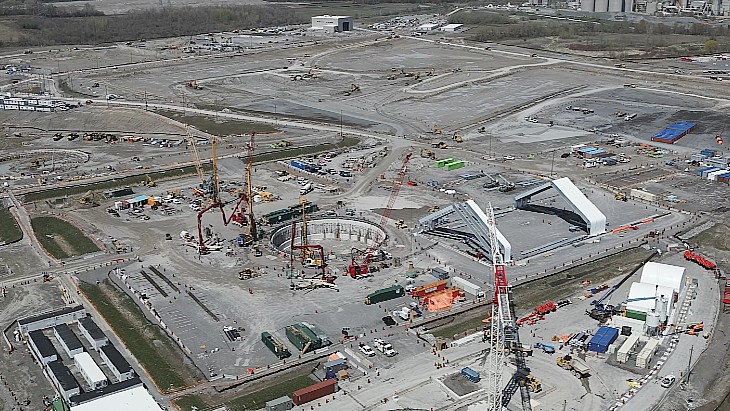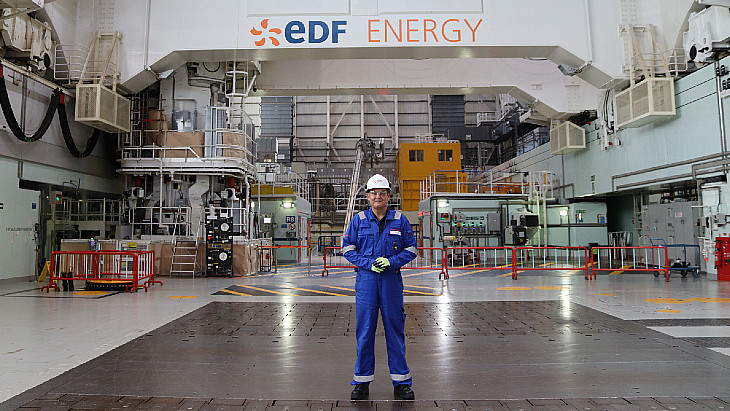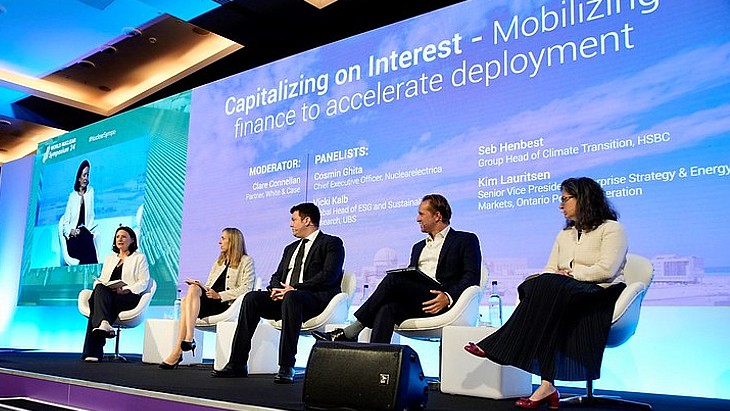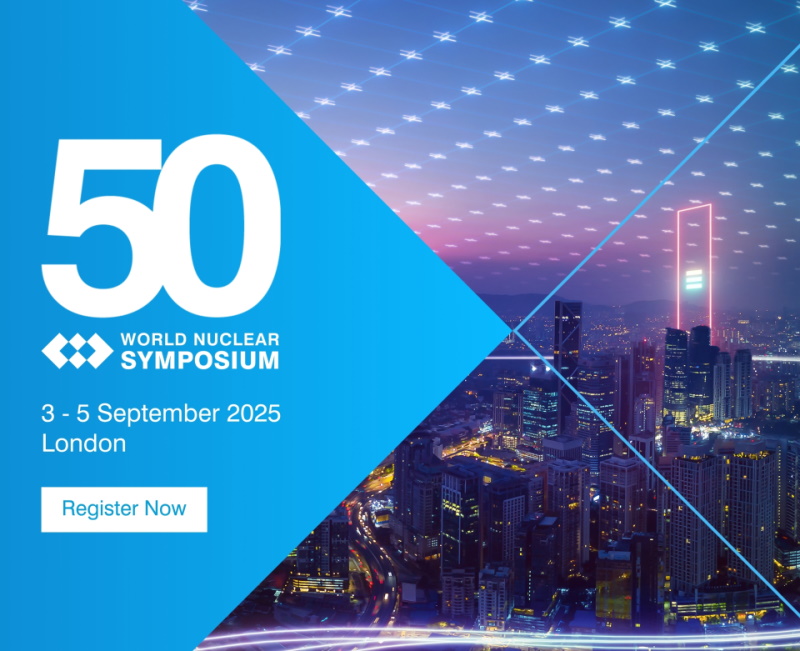The South Australian government supports continued investigation as to whether a used nuclear fuel disposal facility should be established. The only path forward they say is the restoration of bipartisanship and broad social consent, secured through a state-wide referendum. Edward de la Billiere looks at the latest developments in the debate.
In reaction to a declining economy, in 2015 the Labour government of South Australia (SA) set up a Royal Commission to examine the feasibility of expanding its nuclear fuel cycle activities from the existing uranium mining and export endeavours to something much more. After extensive consultations, the Royal Commission reported in May 2016 focussing on four areas of potential development: further radioactive minerals mining, nuclear energy implementation, uranium enrichment and fuel leasing, and offering the world a high-level waste and spent nuclear fuel disposal solution. Of these, the multi-national disposal facility was seen as the most promising option and so the government set about testing public reaction to the idea through establishing a Citizens' Jury - not an uncommon feature in SA.
The Jury gave the government its opinion on 6 November with a resounding two-thirds rejection of the proposal. The other third wanted further dialogue. At first sight, that may seem to be the end of the proposed development, but in the government's official response to the Commission's recommendations published on Monday this week, SA Premier Jay Weatherill appears to have left the door ajar for further discussion.
So, what lay behind the Jury's negative response? Proposing such an idea in the first place was a risk for the government to take, but originally they had opposition support and established a cross-party parliamentary committee to consider the recommendations. Some feel that the question asked of the 300 Jurors was poorly framed and invited a negative response: "Under what circumstances, if any, could South Australia pursue the opportunity to store and dispose of nuclear waste from other countries?"
Against this background, a two-day conference - ANFC16 - held in Adelaide this week brought together the Chairman of the Royal Commission, politicians from both sides in the SA parliament, representatives from Aboriginal communities, nuclear specialists, nuclear regulators, activists, academics, the nuclear industry, lawyers, ecomodernists, professional associations and the international waste management community, to discuss the situation. Several protesters also demonstrated outside the conference on occasion.
The conference was opened with a traditional welcome to the country by a representative of the Kaurna people. In turn, many of the Australian speakers acknowledged that the meeting was taking place on the traditional land of the Kaurna people and paid their respect to Elders past and present.
So, let's take a look at some of the issues discussed.
The Royal Commission Process - It was thought by some that the Royal Commission was the wrong vehicle in any case to look at the issues and that in it was biased in favour of nuclear at the outset.
The Citizens' Jury - Several commentators thought that if the question to the Jury had been along the lines of "do you think that South Australia should do its bit to help world poverty in considering allowing the introduction of nuclear power in many countries through offering waste disposal facilities?", might have elicited a less negative response. One of the main concerns of the Jury was the underlying economic case presented, saying the authors were biased; the counter was that the report was peer reviewed and was only intended as a scoping study in any case, not a definitive answer. The legitimacy of the make-up of the Jury was also called into question, with some feeling that the more vociferous members opposed to nuclear had gained an unfair advantage. It was also asserted that misinformation had been presented to the Jury relating to domestic and international legal matters. The time they had to consider the evidence was also questioned with the six days taken being thought to be too little time.
The Politics - It was apparent in discussions that party politics has now come into the mix. Not only was it the local SA state politics, but also Federal government and opposition stances were also relevant. NIMTO (Not In My Term of Office) was an underlying factor also. The opposition SA Liberal Party had "drawn a line in the sand" with its rejection of further debate and the thought of a referendum down the road. Politicians were also criticised for not being able to take tough, long-term decisions on controversial projects, although they had done so in the past such as with the Olympic Dam mine. It was recognised that the federal government's assent would be required for SA to move ahead with the idea.
The Economics - As well as questioning the underlying assumptions of the economic case, there were concerns about whether there would be a market for the repository and whether also there could be competition and how this could be managed. SA would have the advantage of being the "first mover" to capture potential customers. However, it was felt that the risks associated with the upfront costs for a small state budget were too high and equated to the cost of a new hospital for example. This, it was thought by others, could be managed through contractual arrangements.
The Aboriginal situation - Given that it would be Aboriginal communities most likely to be affected by the development, the conference heard from several of their representatives. Under the UN Declaration on the Rights of Indigenous People, and as also promised by Premier Weatherill, they would have to give their consent for any project to go ahead. It was clear that they were opposed to the idea and that they could never be convinced it would be a good idea. At the heart of their opposition were the memories of the British weapons tests at Maralinga where many communities had been displaced and indeed many individuals had suffered directly from the side effects of the blasts. They clearly felt they had not received full reparation for this and were looking for more. The question was raised as to whether if they did receive full recompense for the damage suffered, would this ease the way for a repository. A further issue arose in discussion which related to the contamination remaining on the land. The common understanding was that there were areas of significant contamination still present, but this was challenged. A clean-up exercise had taken place which aimed to achieve a level of residual contamination which could deliver a dose rate of 5 millisievert per year, but in many cases accomplished 1 millisievert per year, in line with the range of natural background radiation in Australia. However, this fact seems to have been lost within the communities and the conference heard that this will be looked into further.
Safety - Safety wasn't a major factor in discussions, with the possible exception for the Aboriginal representatives and some others. The conference heard that nuclear operations and transport continue safely around the world, and for the long term, that SA had about as good a geology and hydrogeology as you could want for a repository. There would still be some challenges to investigate further but there would be a very high chance of finding a good site. SA was also politically stable and had a good economy.
Continued public debate is important and a matter that the people should decide and not political parties. If there was broad social consent the local Aboriginal community would be given a final right of veto. From now the government will facilitate continued discussion and work to restore a bipartisan position.
Edward de la Billiere
Comments? Please send them to editor@world-nuclear-news.org
Edward de la Billiere is a solicitor and co-founder of Prospect Law. On qualification, Edward moved to Magnox Electric, which was taken over by the nuclear operator BNFL. He has retained a strong interest in energy related projects and has advised recently in respect of energy and waste projects for corporate, local authority and private clients across the UK and internationally. He works as a key part of Prospect Law's nuclear team, which advises the nuclear industry at an international level on operational, technical, financial, environmental and decommissioning nuclear issues, including advising on legislation for states that are new to nuclear power.





_88592.jpg)



